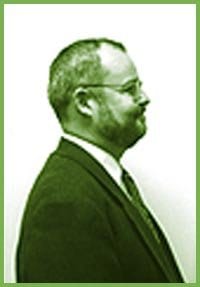Did Toronto City Councillor Kyle Rae cross a line when he publicly called some male 52 Division police officers “rogue cops” and “cowboys” on a “panty raid” after their visit to the women-only Pussy Palace event in September 2000?
Did the police officers have a “hidden agenda” when they spent almost an hour inspecting the restricted-access lesbian sex party for liquor charges that didn’t stick?
These are just a few of the questions put to a six-person jury – five women and one man – as a defamation lawsuit against Rae kicked into gear before Ontario Superior Court Justice Jean MacFarland this week.
In a suit filed in November 2000, seven police officers are suing Rae for statements he made to the media in the weeks after officers visited the Sep 14, 2000 women’s bathhouse at the normally men-only Club Toronto on 231 Mutual St.
The events of that night have already played out in court once. Liquor Licence Act charges against two Pussy Palace organizers were withdrawn in January when Ontario Court Judge Peter Hryn said the evidence against them was obtained in a way that violated the Canadian Charter Of Rights And Freedoms.
But this civil action will look specifically at what Rae said in response to the raid, whether he was justified in saying it and whether he spoke out of malice towards the officers.
In his opening remarks, Michael Freeman, lawyer for the cops, said his clients had unblemished records before the incident. He says Rae’s comments “caused embarrassment, harm to their reputations and lowered their esteem in the community.” He says the comments “impacted them personally, professionally… and will cause them significant financial loss for the duration of their careers.”
He also pointed out to the jury that the five male plaintiffs – Dave Wilson of Pickering, Peter Christie of Durham Region, Rich Petrie of Aurora, Myron Demkiw of Toronto and Adrian Greenaway of Toronto – were “all involved in steady relationships” and have children; Rae is “an openly gay individual and advocate of gay rights.” The jury was not told the sexual orientation of the two female officers, Chris LaFrance of Burlington and Janet Hall of Ajax, who went undercover into the Pussy Palace before calling the men to come in.
Freeman said the case is not about how the police conducted themselves inside the Pussy Palace, nor about gender equality or policing “certain communities”.
“It’s about what a public official can or can’t say to the media,” he said.
Rae’s lawyer, John David Holding, said there are more important issues to the case than “the hurt feelings and bruised egos of these police officers.”
Holding argued that the officers have not suffered damages and that, if their careers have suffered, “it’s because of their own conduct and the natural reaction of Toronto to that conduct.
“This case is not about gay rights, but the right of all Canadians to be free from unreasonable search,” said Holding. He said that, after Rae found out what the police had done at the Pussy Palace, it was his responsibility to inform the community.
“He used colourful language,” said Holding. “Rae can only communicate to the public through the media and… the media respond to sound bites, colourful language.”
In their opening arguments – there will be lots of evidence and testimony to follow – both sides had a similar version of the facts leading up to the night of the raid.
A couple of days prior to the Pussy Palace event, Hall received two anonymous calls alleging that criminal sexual activity had taken place at the Pussy Palace the previous year. Hall worked in special investigation services, also known as the vice squad. She told her supervisor, Demkiw, who then contacted Wilson, who at the time worked in the plainclothes division of downtown Toronto’s 52 Division.
Freeman said the officers decided to send Hall and another female officer, LaFrance, into the event undercover and that the female officers determined it was necessary for the men to join them inside, and that liquor charges were laid.
Holding said the actions of the police demonstrated “a hidden agenda.
“Demkiw wanted to piggyback [a criminal investigation] on that [liquor] inspection,” said Holding. “The problem is that it’s illegal. You’re not permitted to do that.”
Freeman said the Pussy Palace events are part of a series of events in the Church-Wellesley community, where police had entered other gay and lesbian establishments and laid charges.
“There is a concern in the Church-Wellesley community about how they’re being policed. Rae worked very hard on these issues and felt the operation of Sept 2000 violated that understanding,” said Freeman. “Wilson and Rae were at the forefront of that development process.”
*The defamation case is scheduled to last until Fri, Jun 14; proceedings take place from about 10am to 4pm weekdays, in courtroom 5-1 at 361 University Ave.


 Why you can trust Xtra
Why you can trust Xtra


